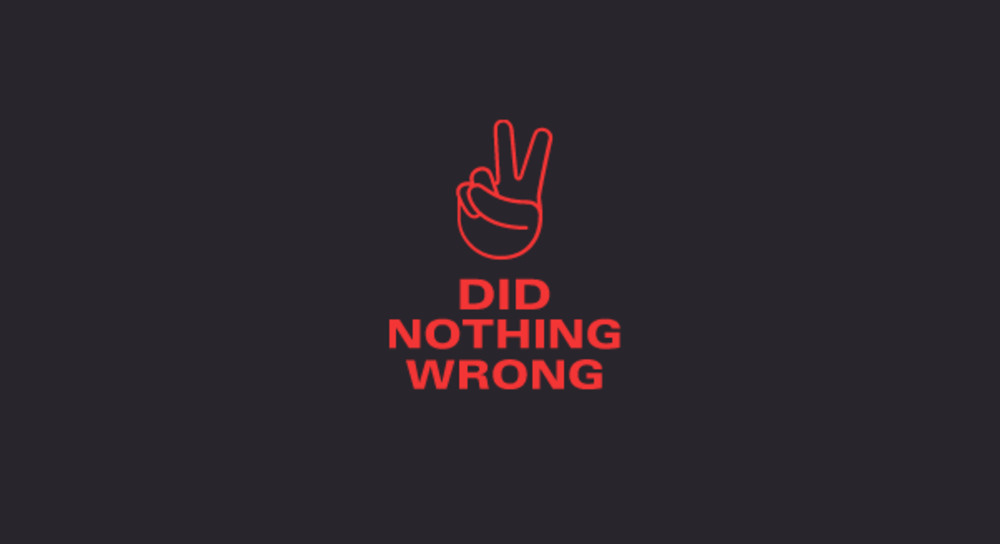
Episode 47 - The Douglass Mackey Trial, and a potential TikTok ban
 2023-03-23
2023-03-23
The one where we talk about what's at stake in the Douglass Mackey/Ricky Vaughn election interference trial, as well as the ramifications of a potential ban on TikTok in the United States.
Here are some of the sources we used to create this episode:
Douglass Mackey's indictment
“There is no place in public discourse for lies and misinformation to defraud citizens of their right to vote,” said Seth D. DuCharme, Acting U.S. Attorney for the Eastern District of New York. “With Mackey’s arrest, we serve notice that those who would subvert the democratic process in this manner cannot rely on the cloak of Internet anonymity to evade responsibility for their crimes. They will be investigated, caught and prosecuted to the full extent of the law.”
“Protecting every American citizen’s right to cast a legitimate vote is a key to the success of our republic,” said William F. Sweeney Jr., Assistant Director in Charge of the FBI’s New York Field Office. “What Mackey allegedly did to interfere with this process – by soliciting voters to cast their ballots via text – amounted to nothing short of vote theft. It is illegal behavior and contributes to the erosion of the public’s trust in our electoral processes. He may have been a powerful social media influencer at the time, but a quick Internet search of his name today will reveal an entirely different story.”
The complaint alleges that in 2016, Mackey established an audience on Twitter with approximately 58,000 followers. A February 2016 analysis by the MIT Media Lab ranked Mackey as the 107th most important influencer of the then-upcoming Election, ranking his account above outlets and individuals such as NBC News (#114), Stephen Colbert (#119) and Newt Gingrich (#141).
Luke O'Brien's story revealing "Ricky Vaughn's" identity as Douglass Mackey
“During Gamergate, a 2014 online harassment campaign waged by misogynists and racists online against women and minorities in the video game industry, Ricky Vaughn linked up with Yiannopoulos and Cernovich, who were ringleaders in the harassment and would both go on to even greater notoriety with their attempts to contaminate American political discourse with conspiracy theories.
“I owe a lot to them,” Ricky Vaughn said on a recent podcast.
By the beginning of 2016, he was clearly an open “alt-right” white nationalist. He talked about how “the good people are siding with nationalism and the Shabbos goyim shills and the neocohens are siding with the globalists.” He talked about how he wanted to “introduce ideas of racial consciousness into the mix so that patriotic American conservatives don’t feel bad about creating all-White communities and shunning mixed-marriages and that sort of thing, because we need racial separatism in order to maintain our unique culture and racial heritage.”
Michael Edison Hayden on the Douglass Mackey trial - SPLC
Mackey’s Ricky Vaughn persona seemed to disappear from the web until the DOJ produced these charges in January 2021. After the DOJ charged Mackey, he emerged as a cause célèbre among anti-democracy, radical-right figures, who have depicted him as a victim of state oppression. Daily Stormer and other racist websites raised money for his defense. Fox News’ Tucker Carlson inaccurately described Mackey as a “conservative journalist” on his show in January 2021. Following Carlson’s segment, an anonymous person dropped $60,000 to Mackey in Bitcoin, buoying his defense, as Hatewatch previously reported.
"Microchip" interviewed by Jack Posobiec
Jack Posobiec, a correspondent for One America News Network (OANN), brought a pseudonymous disinformation poster onto the air without providing context of that person’s hateful and terroristic beliefs, Hatewatch found.
Posobiec produced a segment for OANN in September 2018 in which he interviewed “Microchip,” who was at that time a pseudonymous contributor to the white-supremacist-friendly website Gab. Microchip achieved notoriety during Trump’s 2016 run for president for his involvement in a number of high-profile disinformation campaigns. Posobiec also linked his Twitter followers to Microchip’s Gab feed at least five times after the interview was aired, archives show. Microchip posted statements to Gab prior to being interviewed on OANN that celebrated Hitler, and alluded to terrorism and murder.
Wall Street Journal - TikTok tracking pixels present in government websites
A review of the websites of more than 3,500 companies, organizations and government entities by the Toronto-based company Feroot Security found that so-called tracking pixels from the TikTok parent company were present in 30 U.S. state-government websites across 27 states, including some where the app has been banned from state networks and devices. Feroot collected the data in January and February of this year.
The presence of that code means that U.S. state governments around the country are inadvertently participating in a data-collection effort for a foreign-owned company, one that senior Biden administration officials and lawmakers of both parties have said could be harmful to U.S. national security and the privacy of Americans.
China's version of TikTok -Deseret News
Although they’re both owned by ByteDance, Douyin — China’s version of TikTok — offers a different version of the social media app that is unavailable to the rest of the world, especially for children.
“It’s almost like they recognize that technology is influencing kids’ development, and they make their domestic version a spinach version of TikTok, while they ship the opium version to the rest of the world,” Tristan Harris, a former Google employee, and advocate for social media ethics, said of China’s approach to TikTok.
“If you’re under 14 years old, they show you science experiments you can do at home, museum exhibits, patriotism videos and educational videos,” said Harris, according to “60 Minutes,” adding that children in China were limited to only 40 minutes a day on the app.
“There’s a survey of pre-teens in the U.S. and China asking, ‘what is the most aspirational career that you want to have?’ and in the U.S., the No. 1 was a social media influencer, and in China, the No. 1 was astronaut,” Harris said. “You allow those two societies to play out for a few generations and I can tell you what your world is going to look like.”
"National Rape Day" hoax goes viral for the second time - Media Matters
In April 2021, a hoax called “National Rape Day” went viral on TikTok. Videos garnered millions of views claiming that on April 24, 2021, large groups of men planned to sexually assault women en masse. Now, the same hoax is reemerging on the very same social media platform, which seems unable or unwilling to curtail the spread of viral misinformation.
While the “National Rape Day” hoax had been previously floating around the collective consciousness as an urban legend, it found new levels of virality through TikTok’s recommendation algorithm in 2021. The earliest mention of “National Rape Day” on social media that Media Matters could identify was a tweet from April 11, 2021, that read, “Please if you are in the uk, be safe, the boys have made a ‘national rape’ day and that’s tomorrow.” A screenshot of the tweet was circulating on 4chan’s /pol message board the next day.
It seems that shortly after this tweet, the hoax started to spread on TikTok, where it went viral. At the time, a Media Matters study found that 48 of the top 50 TikTok videos under the “#April24” hashtag contained misinformation and none of the videos provided a debunk or any factual information. The hoax gained further legitimacy through poor media coverage, which amplified the panic, as well as participation in the trend from some members of law enforcement on TikTok.
TikTok's algorithm leads users from transphobic videos to far-right rabbit holes - Media Matters
Several of the videos fed to our FYP featured audio called “Teddy” which says, “The industrial revolution and its consequences have been a disaster for the human race,” a quote taken from the first line of “Unabomber” Ted Kaczynski’s manifesto, “Industrial Society and Its Future.” Kaczynski killed three people and injured 23 others in 1978 with homemade bombs. The audio, which already has been used in over 1,200 unique videos, has become popular on right-wing TikTok and particularly in anti-LGBTQ content, based on the frequency with which it emerged during our study. In the videos we reviewed, it was frequently paired with montages of screenshots of LGBTQ people livestreaming on TikTok. These videos not only use an audio that pays homage to a terrorist, but they also promote the harassment of LGBTQ TikTok users.
This is our current events recap program, where we offer our takes on what’s going on at the bleeding edge of the information war. Feel free to let us know what you think, suggest topics, etc. at didnothingwrongpod@protonmail.com, or in our group chat using the Substack app.
Thanks for listening,
Jay and Griff
This is a public episode. If you’d like to discuss this with other subscribers or get access to bonus episodes, visit www.didnothingwrongpod.com/subscribe
More Episodes
Create your
podcast in
minutes
- Full-featured podcast site
- Unlimited storage and bandwidth
- Comprehensive podcast stats
- Distribute to Apple Podcasts, Spotify, and more
- Make money with your podcast
It is Free
- Privacy Policy
- Cookie Policy
- Terms of Use
- Consent Preferences
- Copyright © 2015-2024 Podbean.com






